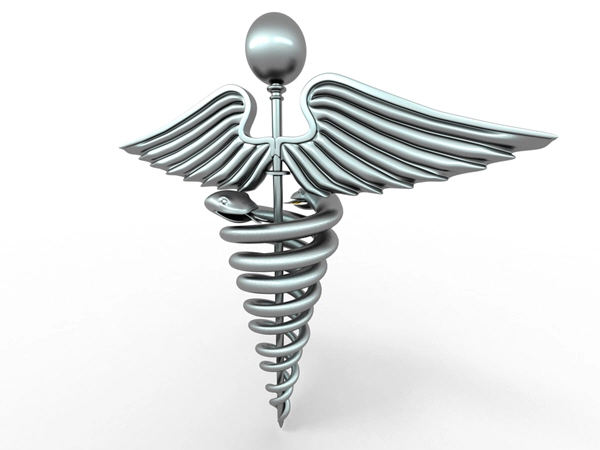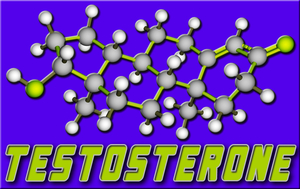 There was recently an exciting breakthrough in prostate cancer treatment. The ideal cancer treatment should be able to attack the source of uncontrolled cellular division at a minimal risk to the patient. In a new development, scientists have discovered a mechanism by which to eliminate prostate cancer by stopping the activity of just one enzyme known as PI5P4K?. The evidence of their clinical efforts was released in the journal Science Advances. While these discoveries have not reached human trials, their potential is undeniable.
There was recently an exciting breakthrough in prostate cancer treatment. The ideal cancer treatment should be able to attack the source of uncontrolled cellular division at a minimal risk to the patient. In a new development, scientists have discovered a mechanism by which to eliminate prostate cancer by stopping the activity of just one enzyme known as PI5P4K?. The evidence of their clinical efforts was released in the journal Science Advances. While these discoveries have not reached human trials, their potential is undeniable.
Overcoming Treatment-Resistant Prostate Cancer
One of the biggest problems with traditional prostate cancer treatment (and most cancers in general) is that effective treatments become increasingly at risk of therapeutic resistance over time. Cancer cells are highly adaptive and can evolve ways to bypass cancer therapy over time. It can be thought of somewhat like an arms race.
Dr. Brook Emerling of the Sanford Burnham Prebys Medical Discovery Institute was the lead author of the study. Based on her experience, she believes that this research provides proof that highly targeted therapies can lead to excellent results. If stopping an enzyme works in prostate cancer, this will no doubt lead to advances in many cancer treatments, like pancreatic, skin, and breast cancer.
The main way that we treat Prostate Cancer today is through Androgen Inhibitors, drugs that suppress the production of Testosterone. This treatment works well, but up to 20% of men that go into remission will develop resistance to standard therapy by five years. If alternate methods of treatment aren't successful, the cancer can metastasize, and mortality risk skyrockets.
How Prostate Cancer Feeds off Testosterone
Prostate Cancer uses Testosterone and other Androgens to feed itself, causing the cancer to grow and to spread if left inadequately treated. Prostate Cancer uses the normal function of male sex hormones to promote its own development. Androgen Blockers work well because Prostate Cancer propagates most effectively in an androgen-rich environment.
Emerling explains that we need to learn exactly how Prostate Cancer originates and propagates so that we can create novel treatments that can significantly slow down the progression of prostate cancer and maybe even reverse its effects.
She is excited because targeted enzyme treatment gives hope to men that have developed resistance to Androgen Blockers or who have Prostate Cancer that thrives even when Testosterone is suppressed. With luck and ingenuity, we may eventually be able to treat Prostate Cancer without Androgen Suppression.
PI5P4K? Enzyme May Be Engine of Prostate Cancer Growth
Dr. Emerling and co-author Mark A. Rubin began investigating PI5P4K? because they observed that men with resistant, persistent prostate cancer showed elevated circulation of the enzyme. Based off of this information, the doctors hypothesized that PI5P4K? was the culprit that led to resistance and may even be critical to how all prostate cancers grow.
Emerling, Rubin, and their team analyzed the effects of PI5P4K? suppression through multiple advanced modeling systems for prostate cancer. These systems all demonstrated that by eliminating PI5P4K?, they could kill prostate cancer even for men that don't respond effectively to traditional treatment.
PI5P4K? is in a class of enzymes known as PI5P4Ks. These enzymes are important for lipid metabolism. Some vitamins are lipids, as are all fats and hormones. Researchers have just begun to understand the potential of treating cancer via targeted lipid metabolism inhibitors. If it's possible to target PI5P4K? specifically while maintaining the effectiveness of other PI5P4Ks, we can treat prostate cancer without affecting other critical avenues of fat metabolism.
Doctors Emerling and Rubin are in the process of creating drugs able to successfully suppress PI5P4K? and are not the only researchers seeking to do so. In a few years, these drugs are likely to enter clinical trial.
Contact Us Today For A Free Consultation

- Weight Loss Cure - Metabolic Cookbook - Video [Last Updated On: January 25th, 2024] [Originally Added On: July 12th, 2013]
- Qualigen Receives FDA Clearance for Its FastPack® Vitamin D Immunoassay [Last Updated On: January 25th, 2024] [Originally Added On: July 16th, 2013]
- How Julia Montes lost weight [Last Updated On: January 25th, 2024] [Originally Added On: October 4th, 2013]
- Home - Dr. Jenyons Medical Weight Loss and Rejuvenation Center [Last Updated On: January 25th, 2024] [Originally Added On: December 8th, 2013]
- Dieters Beware: Weight Loss Products May Use Deceptive Marketing [Last Updated On: January 25th, 2024] [Originally Added On: January 8th, 2014]
- FTC Announces $34 Million in Settlements with Companies Over Bogus Weight-Loss Products [Last Updated On: January 25th, 2024] [Originally Added On: January 9th, 2014]
- The Point of P3 : #3 Food Sensitivities Discovered to Help Weight Maintenance - Video [Last Updated On: January 25th, 2024] [Originally Added On: May 19th, 2014]
- The Weight Loss Black List; Twelve Dangerous Weight Loss Ingredients [Last Updated On: January 25th, 2024] [Originally Added On: May 31st, 2014]
- Getting a degree in dieting [Last Updated On: January 25th, 2024] [Originally Added On: June 10th, 2014]
- Eat your way to a hot body [Last Updated On: January 25th, 2024] [Originally Added On: June 21st, 2014]
- 7 Fad Diets You Shouldn't Try [Last Updated On: January 25th, 2024] [Originally Added On: July 19th, 2014]
- Try the cookie diet? [Last Updated On: January 25th, 2024] [Originally Added On: July 25th, 2014]
- 14 Fad Diets You Shouldnt Try [Last Updated On: January 25th, 2024] [Originally Added On: July 26th, 2014]
- B12 Injection Therapy as Part of Hormone Replacement Therapy - Video [Last Updated On: January 25th, 2024] [Originally Added On: August 12th, 2014]
- FTC continues cracking down on weight loss scams [Last Updated On: January 25th, 2024] [Originally Added On: December 13th, 2014]
- Micronutrients: The Gateway to Cellular Health Function 101 [Last Updated On: March 1st, 2024] [Originally Added On: June 24th, 2020]
- Could a Revolutionary Weight Loss Strategy Be on the Horizon? [Last Updated On: February 24th, 2024] [Originally Added On: August 19th, 2020]
- Controlling Testosterone Levels Through Diet [Last Updated On: February 12th, 2024] [Originally Added On: October 12th, 2020]
- Selecting the Ideal Intermittent Fasting Protocol [Last Updated On: January 25th, 2024] [Originally Added On: October 20th, 2020]
- Limiting the Influence of Estrogen on Male Hormone Balance Through Diet [Last Updated On: January 25th, 2024] [Originally Added On: December 31st, 2020]
- Vitamin D and Sunlight for Mood and Hormone Balance [Last Updated On: January 25th, 2024] [Originally Added On: February 22nd, 2021]
- Testosterone-Boosting Foods: Nutrition for a Man [Last Updated On: September 18th, 2024] [Originally Added On: March 24th, 2021]
- Boost Your Testosterone With a Low-Calorie, Ketogenic-Focused Diet [Last Updated On: August 30th, 2024] [Originally Added On: June 1st, 2021]
- The Standard American Diet is Linked to Poor Testicular Function [Last Updated On: August 23rd, 2024] [Originally Added On: June 8th, 2021]
- Drinking Water Alone Isn’t Enough [Last Updated On: August 26th, 2024] [Originally Added On: March 22nd, 2022]
- A High-Protein Diet – Good for Testosterone Levels or Not? [Last Updated On: September 3rd, 2024] [Originally Added On: March 29th, 2022]
- Inflammatory Foods Linked to Low Testosterone [Last Updated On: September 5th, 2024] [Originally Added On: July 18th, 2022]
- Vitamins and Nutrients that Keep Hair Healthy and Vibrant [Last Updated On: August 11th, 2024] [Originally Added On: November 23rd, 2022]
- Are You a “Soy Boy”? [Last Updated On: December 3rd, 2023] [Originally Added On: February 10th, 2023]
- How to burn calories while walking. [Last Updated On: February 20th, 2024] [Originally Added On: June 27th, 2023]
Word Count: 646




















